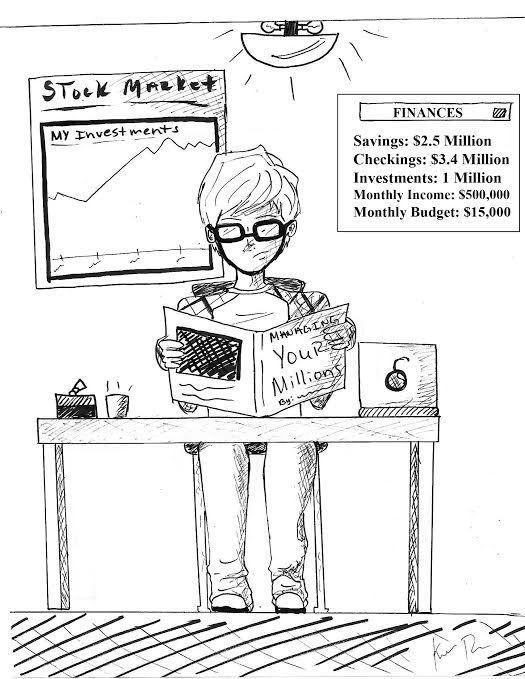You’ve probably heard the “one percent” storyline on both sides of the 2016 election cycle. The buzzword refers to the sobering fact that one percent of the U.S. population possesses 35 percent of the country’s wealth, according to New York University economist Edward Wolff.
If your aspirations include being a one-percenter, then amassing a net worth of $7 million is the goal. Easy enough, right?
While political jargon makes the one percent synonymous with Illuminati members in underground shadow banking rings, millionaires in America are not who you’d think they are.
Thomas Stanley and William Danko have been studying American millionaires for decades. Their most successful book, “The Millionaire Next Door,” profiles the lives of those whose net value is at least $1 million, and the results are surprising.
While most of us picture millionaires as people on Instagram flexing in their new Yeezys, the prototypical millionaires are humble spenders who created their own wealth. For example, the median taxable income of millionaires is only $131,000, and only 13 percent earn more than $500,000.
As an LSU graduate, earning a $131,000 salary in your career isn’t a farfetched idea — your results will vary by major, of course. In fact, being a graduate already gives you a leg up on becoming a millionaire. Only 18 percent hold master’s degrees and 20 percent hold advanced degrees.
The business, medical and law fields seem the obvious producers of millionaires, but any industry can produce a millionaire. Roughly two-thirds of millionaires are self-employed, with many working “dull” jobs, such as contractors or farmers.
The most interesting result from Stanley and Danko’s research is the discovery that beginning life in a lower class doesn’t affect your ability rise to the millionaire class. Eighty percent of millionaires are first-generation affluent, meaning they received little to no inheritance. Only 17 percent attended a private school prior to college.
Today, the media bombards us with the country’s wealth gaps and the death of the American dream. This research, however, suggests the American dream is still alive — no small loan of $1 million needed.
Knowing who the average millionaire is fine, but I know you’re here for the secrets of becoming a millionaire. The secret to building wealth is spending less money than you earn.
It’s not an exciting secret, but it’s the truth. Going back to those flexing on Instagram, these people pay money to look like millionaires, but they aren’t. Spending money on items that don’t grow in value, like the new iPhone, does not make wealth — it just portrays it.
Stanley and Danko’s research finds millionaires live in houses with an average value of $320,000. In their neighborhoods, they have six and a half times the wealth of their neighbors, and non-millionaires outnumber millionaires three-to-one. The average millionaire has given up high-status possessions, such as large houses, for wealth.
When you leave the University and begin making good money, start budgeting. Having a well-planned budget, coupled with fiscal discipline, is the surefire way to build your fortune. Forgoing a new car and abstaining from thousand dollar suits are easy ways to cut down expenses.
Take a page from millionaires and hold 20 percent of your wealth in securities, such as stocks and mutual funds. Don’t touch those accounts. Let them increase in value.
But why should I choose creating wealth over spending money? It’s a fair question. Many of you would rather spend every penny of your paycheck in Tigerland — and I say more power to you.
No one should miss out on precious life experiences just to die with millions of dollars, and nobody should go into debt solely to keep up with the Joneses. Everyone has their own Goldilocks happy medium of wealth and spending.
Research on millionaires shows there is no stereotype for wealth. Achieving your financial goals requires only some simple planning and hard work, even if your aspiration is to become a millionaire.
Jay Cranford is a 21-year-old finance senior from St. Simons Island, Georgia.
OPINION: Millionaires in America aren’t who you think they are
By Jay Cranford
February 15, 2016
More to Discover














